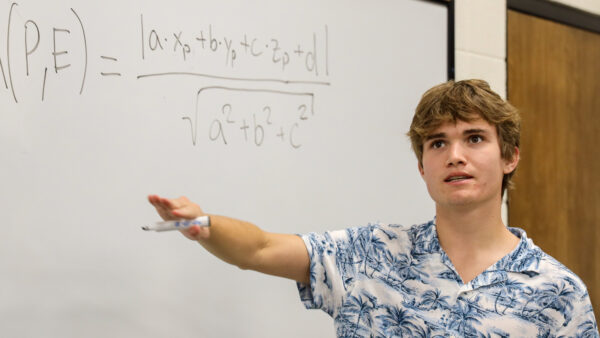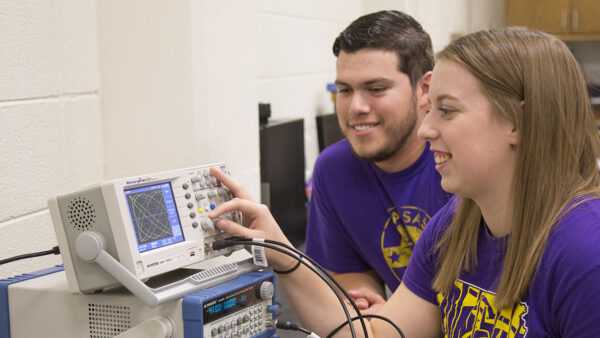Mathematics & Physics
A background in mathematics and physics is required in nearly all science and engineering fields. The Department of Mathematics and Physics at Kansas Wesleyan University is able to provide the solid understanding of mathematics and physics necessary for pursuing further education at the graduate level or applying mathematics and physics principles in a career-launching job.
KWU also offers a dual degree engineering program with Washington University in St. Louis.
To meet the faculty of the Mathematics and Physics program, click here!

Hands-On Learning
Curious about pursuing a major in math or physics but unsure where it might lead? Physics students learn how the natural world works, and the math and problem-solving skills they pick up are great for the job market. Physics majors teach, work on Wall Street, and serve in the military. They also perform well on the admission tests for law and medical schools.
Studying mathematics is akin to learning a language, actively engaging the mind and exploring by doing math. Our world runs on the basis of numbers as words, and those who are proficient in speaking the language of numbers can find great opportunities for entry-level positions and successful careers beyond. Math majors become fluent in the language of numbers and distilling complex, real-world problems into mathematical equations, concepts, and principles that can be solved.
Facilities
The recently remodeled Creager Physics Lab and N. Paul Stucky Optics Lab help provide spaces for KWU Mathematics and Physics students to hone their craft.



